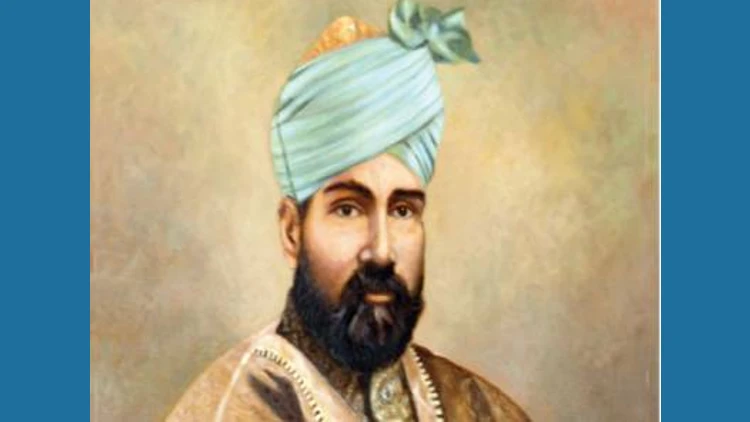
Saquib Salim
Maulana Zafar Ali Khan, often considered the father of Urdu journalism, was a well- known freedom fighter. As editor of the Urdu daily, Zamindar, he wrote extensively in support of the freedom struggle and also served a five-year jail term. A supporter of Congress in initial years, he later joined the Muslim League. Today, it seems impossible that a poet whose politics was rooted in Muslim identity would write in praise of Hinduism and Hindu gods. Zafar wrote extensively praising Lord Rama and, to him, it was not contradictory to Islam.
Zafar’s Sri Ram Chandra se Khitab (Address to Shri Ram Chandra), is one of the best eulogies written for Lord Ram in Urdu. In his view, Lord Rama is the symbol of a living Indian civilization. Addressing Lord Rama he wrote:
Na to naaquus se hai aur na asnaam se hai
Hind ki garmi-e-hungama tere naam se hai
(Neither because of conch nor by its idols
The excitement and love thriving in India is by your name)
He believed that the principles, ideals and philosophies taught by Lord Rama had been forgotten by Indians because of colonial propaganda. Indians blamed this decay in morals to the changing times, which they should not. Zafar wrote,
Teri taalim hui nazr-e-khurafaat-e-firang
Barhaman ko ye gila gardish-e-ayyam se hai
(Your teachings have been destroyed by the evil plans of the English
Brahmin is still blaming it over the changing times)
Zafar wrote that the Hindu civilization had survived the onslaught of colonialism only because people did not forget Lord Rama, Goddess Sita and Lakshman. He emphatically pointed out the following:
Naqsh-e-tehziib-Hunud ab bhi numaya hai agar
To wo Sita se hai, Lachhman se hai aur Ram se hai
(If the imprints of the Hindu civilization are still evident
These are because of Sita, Lakshman and Rama)
The above poem, of which three couplets have been shared, is not the only instance where Zafar had paid tribute to Lord Rama.
In another piece written in 1917, as he appealed to Muslims and Hindus to commemorate Muharram and celebrate Dussehra harmoniously, Zafar threw light on teachings of Lord Rama through Dussehra.
He wrote:
Fasana Ram Chandra ji ka sab ko yaad hai azbar
Unhone kis tarah buniyaad-e-haq-o-sidq mohkam ki
(We all remember the story of Lord Rama/ How, he laid the strong foundations of righteousness and truth)
Shadaayad aur masaayab me.n rahe wo mubtala barso.n
Kisi takliif ki is raah me.n parwaah bahut kam kii
(He faced hardships and difficulties for years. But, never cared of all these problems on the path of righteousness)
In another poem, Tehziib-e-Hunuud, (Hindu Civilization), Zafar took up the role of a preacher.
He asked,
Wo tehziib aey Hinduo.n ho gayi kya
Baja jiska Dankaa tha duniya ke andar
(O, Hindus, what happened to that civilization /Which was famous for its greatness in the world)
In the poem, he pointed out a number of problems among the present-day Hindus. Zafar lamented that the bravery of Arjun was dead, the grandness and luster of Kashi had gone, those riches had turned into rags and people mocked their own Hindu gods. After listing all the ills, he provided the solution in a single couplet. And the solution was turning back to the teachings of Lord Rama. He wrote:
Haqiiqat shanaasi ki gar justjuu hai
Sabaq tumko denge Sri Ram Chandra
(If you want to learn reality of the world and true knowledge. The lesson will be taught by Lord Rama)
In another poem he termed the Indians collaborating with the British as the followers of Ravana. Zafar wrote,
Koi leta hai muh se Ram ka naam
Magar kehta hai Ravan hi khuda hai
(He who utters the name of Lord Rama
Through actions, consider Ravana as his god)
Zafar's had read Valmiki Ramayana and translated it. One act of Ramayana translated into poetry, was published in one of his books.
Maulana Zafar Ali Khan published all these writings in one of the leading Urdu newspapers and it never clashed with his image of a Muslim thinker. In his belief, and rightly so, India is an ancient civilization that has produced scholars, thinkers and rulers who should be respected. The great men of the soil should be freed from narrow politics, their teachings should be adopted in the present context and respect for all religions should prevail. Only then can India return to its glorious past, Maulana Zafar Ali Khan had talked about.
Like Maulana Zafar Ali Khan, several Muslim writers paid tribute to Hindu Gods and Goddesses. Interestingly, most of them were known for their orthodox Islam and not for their western outlook towards religion.
One such poet was Mohammad Iqbal, more popularly known as Allam Iqbal. He also wrote Sare Jahan Se aacha Hindustan hamara.., a number the humming of which fills our hearts with pride even today. Today, Iqbal is seen more as a Muslim ideologue and in Pakistan, he is considered one of the founders of the idea of the nation.
He too has writen a n eulogy of Ram. Readers, who are far removed from the realities of those days, may find it hard to believe that he wrote that poem. The couplet below is from that poem:
Hai Ram ke wajood pe Hindustaan ko naaz
Ahl-e-Nazar samajhte hain us ko Imam-e-Hind
(India is proud of the existence of Ram, Spiritual people consider him prelate of India)
(The author is a Historian and a Writer)
